Model Pendidikan Islam Berbasis Keluarga yang Adaptif di Era Digital dan Kecerdasan Buatan: Telaah Literatur, Teks, dan Konteks
Abstract
The era of digital disruption, marked by the rapid advancement of Artificial Intelligence (AI), has significantly impacted various aspects of life, including the Islamic education system. In this context, the family as the first and foremost educational institution is confronted with both new challenges and opportunities in instilling Islamic values in the younger generation. This article aims to examine the urgency of developing a family-based Islamic education model that is adaptive to the advancement of digital technology and AI. This study employs a literature review method with a multidisciplinary approach, which includes: (1) an exploration of classical and contemporary literature on the concept of family education in Islam; (2) a normative analysis of the primary sources of Islamic teachings, namely the Qur’an and Hadith, concerning the role and responsibilities of the family in education; and (3) a contextual analysis of the dynamics, challenges, and opportunities facing Muslim family education in the modern 21st century. The findings of this study indicate that effective family education in the digital age requires the integration of foundational Islamic values with parenting and educational strategies that are responsive to technological developments. Moreover, it necessitates a family education model that is not only normatively grounded but also adaptive to the changing times, collaborative between families and their environments, and contextualized to the social realities of today’s Muslim communities.
References
Adha, M. M., & Ulpa, E. P. (2021). Peran Orang Tua Dan Guru Dalam Mengembangkan Karakter Anak/Peserta Didik Di Era Modern. Jurnal Global Citizen: Jurnal Ilmiah Kajian Pendidikan Kewarganegaraan, 10(2), 90-100. https://doi.org/10.33061/jgz.v10i2.5325
Al Khansa, E., Bagaskara, F. R., & Hijriyah, U. (2024). Optimalisasi Peran Ibu Dalam Membangun Pendidikan Karakter Anak Di Era Digital Berbasis Nilai-Nilai Islam. Pendas: Jurnal Ilmiah Pendidikan Dasar, 9(04), 233-247.
Alfani, I. H. D., Mukhsin, M., Khusnadin, M. H., Addzaky, K. U., & Mawaddah, P. W. (2025). Child Education in the Qur'anic Perspective: Tafsir Tarbawi Analysis and Its Implications for Modern Education. Jurnal Penelitian Ilmu-Ilmu Sosial, 6(1), 12-34.
Al-Hawary, S. I. S., Kumar, T., Pallathadka, H., Alshahrani, S. H., Al-Tamimi, H. A. N. M., Muda, I., & Singer, N. (2023). The education of children in an Islamic family based on the Holy Qur’an. HTS Teologiese Studies/Theological Studies, 79(2), 8273. https://doi.org/10.4102/hts.v79i2.8273
Arafat, G. Y. (2018). Membongkar isi pesan dan media dengan content analysis. Alhadharah: Jurnal Ilmu Dakwah, 17(33), 32-48. https://doi.org/10.18592/alhadharah.v17i33.2370
Aziz, T. (2024). Internalization of Islamic values in children within families in the digital era. Nak-Kanak Journal of Child Research, 1(1), 37-46. https://doi.org/10.21107/njcr.v1i1
Bahri, S. (2022). Pendidikan Akhlak Anak dalam Perspektif Imam Al-Ghazali. At-Tadzkir: Islamic Education Journal, 1(1), 23-41. https://doi.org/10.59373/attadzkir.v1i1.6
Barriage, S. (2022). Young children’s interest-driven information practices. Information and Learning Sciences, 123(7/8), 371-398. https://doi.org/10.1108/ils-03-2022-0037
Domazet, S. (2022). How digital age shapes the mind of modern youth. Kultura, (176), 77-87. https://doi.org/10.5937/kultura2276077d
Figueiredo, M. (2025). Introduction to Artificial Intelligence. In Generative AI with SAP and Amazon Bedrock: Utilizing GenAI with SAP and AWS Business Use Cases (pp. 1–54). Berkeley, CA: Apress. https://doi.org/10.1007/979-8-8688-0968-2
Firdaus, O. A., Zidane, M. F., putra Ramadhan, B., & Anwar, M. Y. (2025). Dakwah Digital pada Platfrom di Media Sosial dan Pengaruhnya terhadap Perubahan Sosial di era Modern. Jurnal Ilmu Pendidikan Muhammadiyah Kramat Jati, 6(1), 288-297. https://doi.org/10.55943/jipmukjt.v6i1.377
Harahap, R. H., & Harahap, R. B. (2022). Maqashid Ash-Sharia Principles In Child Protection. Jurnal El-Thawalib, 3(4), 691-701.
Kesuma, M. I. J., Sari, I. N. B., Yansyah, M. E. J., Sari, M., Anwar, C., Anwar, S., & Dacholfany, M. I. (2025). School Policy In the Development of the Islamic Religious Education Curriculum: A Case Study at SMAS YPPL Panjang. Dirasah: Jurnal Pendidikan Islam, 6(1), 52-63.
Kusrini, E. (2022). Concept of Family Education in Islamic Perspective. International Proceedings of Nusantara Raya, 1, 194-199. https://doi.org/10.24090/nuraicon.v1i1.127
Lovink, G. (2020). Sad by Design: On Platform Nihilism. New Media & Society, 22(8). https://journals.sagepub.com/doi/10.1177/1461444820939442
Lucas, A. M., Njihia, G. M., Bibi, B., Alzubaidi, M., & Househ, M. (2023). Social Media Use and Depression in Adolescents: A Scoping Review. Behavioral Sciences. https://doi.org/10.3390/bs13060475
Maryani, I. (2025). Artificial Intelligence Dalam Pendidikan: Sebuah Bunga Rampai. Bantul: K-Media.
Mori, C., Park, J., Racine, N., Ganshorn, H., Hartwick, C., & Madigan, S. (2023). Exposure to sexual content and problematic sexual behaviors in children and adolescents: A systematic review and meta-analysis. Child abuse & neglect, 143, 106255. https://doi.org/10.1016/j.chiabu.2023.106255
Muslim, M. (2024). Internalizing Digital Technology in Islamic Education. Scaffolding: Jurnal Pendidikan Islam dan Multikulturalisme, 6(3), 180–197. https://doi.org/10.37680/scaffolding.v6i3.6309
Musmualim, M., & Miftah, M. (2016). Pendidikan Islam Di Keluarga Dalam Perspektif Demokrasi (Studi Pemikiran Hasan Langgulung dan Abdurrahman an Nahlawi). Jurnal Penelitian, 10(2). https://doi.org/10.21043/JUPE.V10I2.1781
Mustapha, R., & Malkan, S. N. A. (2025). Maqasid al Shariah in the AI Era: Balancing innovation and Islamic ethical principles. International Journal of Islamic Theology & Civilization, 3(3), 1–21. https://doi.org/10.5281/zenodo.15381828
Musyahidah, S., Rahim, M. R., Syafri, M., Arman, M., & Arifin, M. P. (2022). The Concept Of Child Rearing In The Qur'an. Jurnal Adabiyah, 22(2), 295-314. https://doi.org/10.24252/jad.v22i2a7
Nasir, M., & Sunardi, S. (2025). Reorientasi Pendidikan Islam Dalam Era Digital: Telaah Teoritis Dan Studi Literatur. Al-Rabwah, 19(1), 056-064.
Pan, Y. (2023). Study on the influence of personalized algorithm of social media tiktok upon college students. Lecture Notes in Education Psychology and Public Media, 4, 1185-1196. https://doi.org/10.54254/2753-7048/4/2022860
Pedro, F., Subosa, M., Rivas, A., & Valverde, P. (2019). Artificial intelligence in education: Challenges and opportunities for sustainable development. UNESCO. https://hdl.handle.net/20.500.12799/6533
Priya, A. (2017). From joint to nuclear: Some observations on the changing pattern of family as a social institution. IOSR Journal of Humanities and Social Science, 22(06), 28-31. https://doi.org/10.9790/0837-2206032831
Rahman, T., Supraha, W., & Ahmad, A. J. (2022). Peningkatan kecerdasan spiritual Islam perspektif Syaikh al-Islam Ibnu Taimiyah dalam Kitab Al-Tuhfah al-‘Iroqiyyah. Tawazun: Jurnal Pendidikan Islam, 15 (3), 397. https://doi.org/10.32832/tawazun.v15i3.7732
Ramadhini, F. (2021). Pemikiran Ibnu Qayyim Al Jauziyyah Tentang Pendidikan Anak Usia Dini. Jurnal Darul’Ilmi, 9(02), 200. https://doi.org/10.24952/di.v9i2.4741
Ramdhan, T. W. (2025). Teknologi Pendidikan Islam. Press STAI Darul Hikmah Bangkalan, 1(1), 1-179.
Ramdhani, K., Hermawan, I., & Muzaki, I. A. (2020). Pendidikan Keluarga Sebagai Fondasi Pertama Pendidikan Karakter Anak Perspektif Islam. Ta'lim, 2(2), 36-49. https://doi.org/10.36269/tlm.v2i2.284
Rochmawan, A. E., Nashir, M. J., Abbas, N., Hidayah, N., & Amin, L. H. (2024). Panduan Parenting Cerdas Keluarga Harmonis pada Era Digital. Jurnal Al Basirah, 4(2), 59–79. https://doi.org/10.58326/jab.v4i2.232
Rozali, Y. A. (2022, January). Penggunaan analisis konten dan analisis tematik. In Penggunaan Analisis Konten Dan Analisis Tematik Forum Ilmiah (Vol. 19, p. 68).
Saputri, N. (2025). Interaksi Mahasiswa Dengan Artificial Intelligence dan Implikasinya Terhadap Akhlak Digital: Tinjauan Psikologi Pendidikan Islam. Al-Zayn: Jurnal Ilmu Sosial & Hukum, 3(3), 1606-1616.
Satria, D., Kusasih, I. H., & Gusmaneli, G. (2025). Analisis rendahnya kualitas pendidikan di Indonesia saat ini: Suatu kajian literatur. Jurnal Bintang Pendidikan Indonesia, 3(2), 292–309. https://doi.org/10.55606/jubpi.v3i2.3838
Scribano, A. (2024). Emotions, society, and influencers in the digital era. Online Media and Global Communication, 3(4), 473–486. https://doi.org/10.1515/omgc-2024-0065
Sintiya, S. (2024). Islamic Religious Education Curriculum Model Based On Maqashid Syariah Intelligence, Innovation Of Cognitive Approach And Real Action In Campus Environment. International Journal of Educational Innovation and Science Development Research, 1(3), 34-42.
Tabroni, I., & Dodi, J. (2022). Family Education in The Book ’Uqud Al-Lujjain fi Bayani Huquqi Al-Zaujain.Muttaqien. https://doi.org/10.52593/mtq.03.1.04
Trautman, L. J., Foster, I. I., & Larry, D. (2024). Social media, law, Meta, Instagram, Tiktok, and Facebook: Unsafe for pre adults? SSRN. https://doi.org/10.2139/ssrn.5016919
Wilanda, M. A., Rahmawati, I. N., Primayeni, S., & Sari, H. P. (2025). Membangun Karakter Islami di Era Digital: Tantangan dan Solusi. QOSIM: Jurnal Pendidikan Sosial & Humaniora, 3(2), 567-573. https://doi.org/10.61104/jq.v3i2.940
Yumnah, S. (2022). The Role Of Parents On The Forming Of Children's Children In The Family: The Thematic Hadith Study. LISAN AL-HAL: Jurnal Pengembangan Pemikiran dan Kebudayaan, 16(2), 193-202. https://doi.org/10.35316/lisanalhal.v16i2.193-202
Zahrotunnisa, Z., Utama, D. S. B., Farhana, Y. W., Aprillia, S. D., & Fadil, A. (2025). Krisis Identitas dan Tantangan Pendidikan Islam di Era Digital: Analisis Perspektif Sosiologi Pendidikan. Jurnal Ilmiah Penelitian Mahasiswa, 3(4), 483-494.
Zulhaini, Z. (2019). Peranan keluarga dalam menanamkan nilai-nilai pendidikan agama Islam kepada anak. Al-Hikmah (Jurnal Pendidikan dan Pendidikan Agama Islam), 1(1), 1-15. https://doi.org/10.36378/al-hikmah.v1i1.57

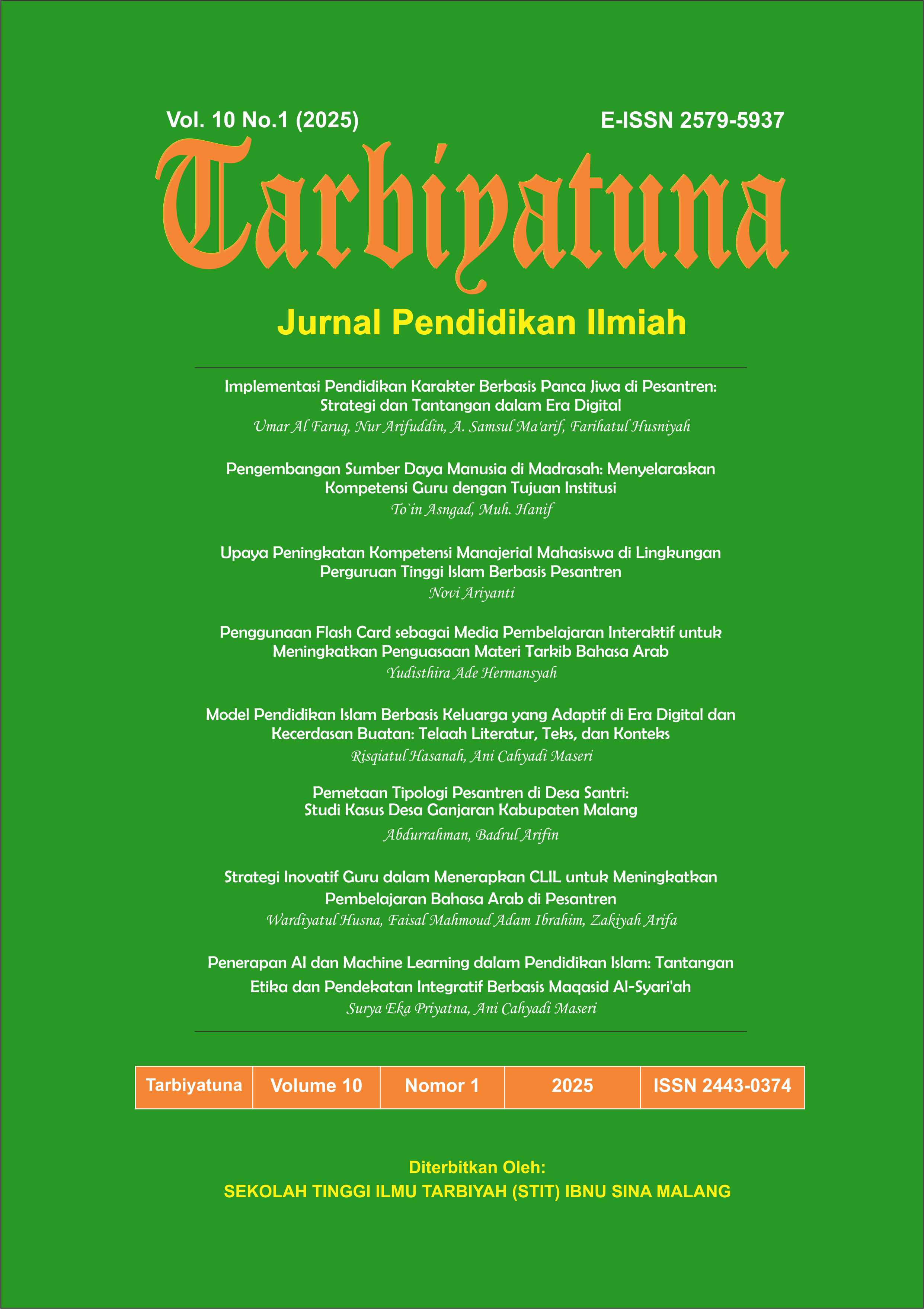

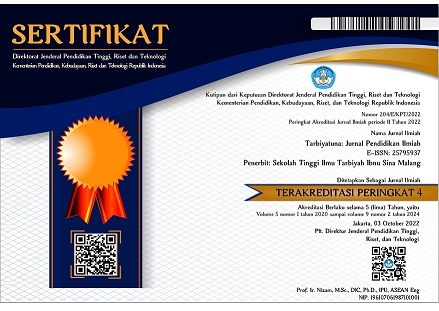
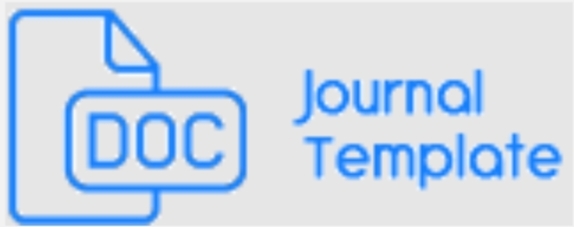

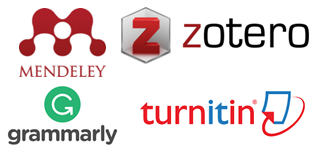
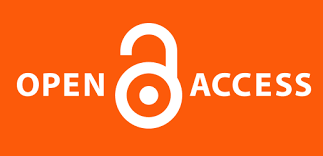
.png)

